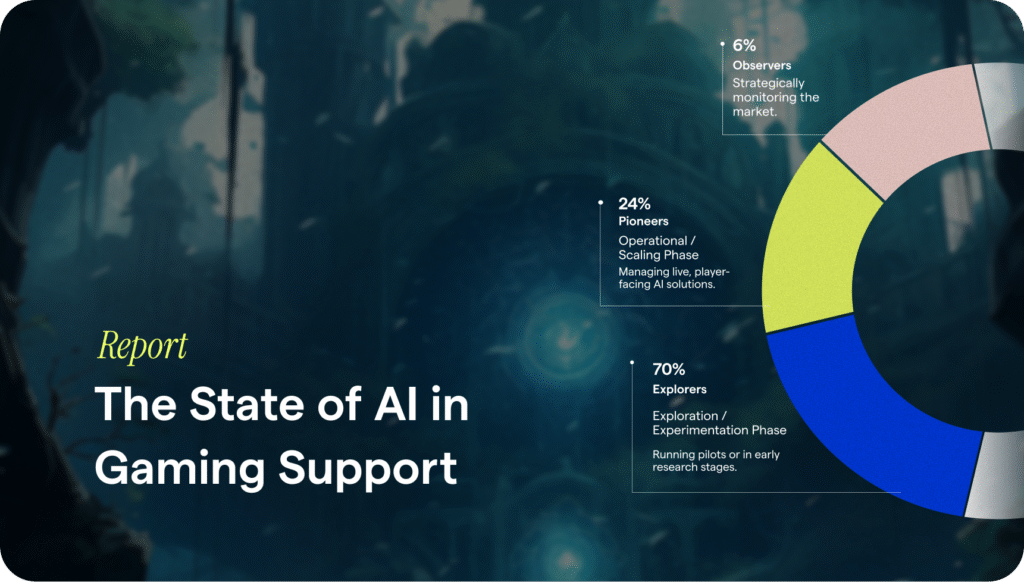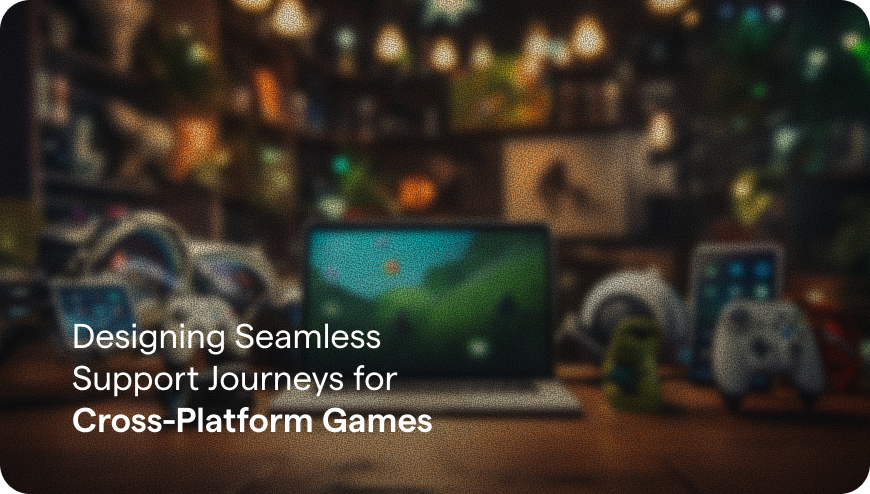In the era of instant gratification, customers expect personalized experiences tailored to their unique needs. As businesses strive to meet these expectations, artificial intelligence (AI) has emerged as a game-changer in the realm of customer support.
AI-powered chatbots are revolutionizing the way companies interact with their customers, offering 24/7 availability, scalability, and cost efficiency. By leveraging advanced technologies like natural language processing (NLP) and machine learning (ML), these intelligent virtual assistants are transforming the customer support landscape.
In this article, we will explore how AI chatbots enable businesses to deliver ai for personalized customer support at scale. We will delve into the key features that drive personalization, the benefits of real-time contextual support, and the metrics to track the impact of personalization on customer satisfaction.
What is Personalized Customer Support?
Personalized customer support is the practice of tailoring support interactions to meet the unique needs, preferences, and circumstances of individual customers. Rather than providing generic, one-size-fits-all responses, personalized support leverages customer data, interaction history, and contextual information to deliver relevant, timely, and meaningful assistance.
This approach goes beyond simply addressing the customer by name. True personalization involves understanding each customer’s journey, their preferred communication channels, past purchase behavior, and current context within your product or service. For instance, a gaming company might provide different support responses to a new player struggling with basic gameplay versus a veteran player experiencing advanced technical issues.
Personalized customer support encompasses key elements like customer context awareness, behavioral insights, communication preferences, and proactive assistance. In today’s competitive landscape, this approach has evolved from a nice-to-have feature to a fundamental customer expectation.
The Strategic Benefits of Personalized Customer Support
Implementing personalized customer support delivers measurable benefits that directly impact your bottom line and customer relationships:
Enhanced Customer Satisfaction and Loyalty
When customers receive support that feels tailored to their specific needs, satisfaction scores increase significantly. Personalized interactions demonstrate that you value each customer as an individual, fostering stronger emotional connections to your brand. Studies show that customers who experience personalized support are 3x more likely to recommend your company to others and have a 20% higher lifetime value.
Improved First Contact Resolution Rates
Personalized support enables agents and AI systems to understand customer context immediately, leading to faster and more accurate problem resolution. Instead of starting from scratch with each interaction, support teams can access relevant customer history and preferences, reducing the need for multiple touchpoints and escalations.
Increased Operational Efficiency
By delivering the right information at the right time, personalized support reduces average handle times and minimizes repetitive inquiries. Customers spend less time explaining their situation, and support teams can focus on solving problems rather than gathering basic information. This efficiency translates to cost savings and improved resource allocation.
Higher Self-Service Adoption
Personalized knowledge bases and automated responses encourage customers to find solutions independently. When customers see content that’s relevant to their specific use case, they’re more likely to engage with self-service options, reducing the burden on human agents while maintaining customer satisfaction.
Competitive Differentiation
In markets where products and pricing may be similar, exceptional personalized support becomes a key differentiator. Companies that excel at personalization create switching costs for customers, who are reluctant to leave providers that truly understand their needs and preferences.
Valuable Customer Insights
Personalized support interactions generate rich data about customer behavior, pain points, and preferences. This information can inform product development, marketing strategies, and business decisions, creating a virtuous cycle of continuous improvement.
The investment in personalized customer support technology and processes pays dividends through improved customer retention, increased upselling opportunities, and enhanced brand reputation. As customer expectations continue to rise, businesses that prioritize personalization will be better positioned to thrive in an increasingly competitive marketplace.
How to Deliver Personalized Customer Support with AI Chatbots
1. The Growing Demand for Personalization in Customer Support
In today’s competitive business landscape, personalization has become a critical differentiator. Customers expect seamless, tailored experiences across all touchpoints — and support interactions are no exception.
According to a study by Epsilon, 80% of consumers are more likely to make a purchase when brands offer personalized experiences. This highlights the importance of delivering individualized support that caters to each customer’s unique needs and preferences.
2. Limitations of Traditional Chatbots in Personalizing Support
Traditional chatbots, based on rule-based systems and predefined scripts, often fall short in delivering personalized support. These chatbots lack the ability to understand context, interpret nuances in language, and adapt to individual customer needs.
As a result, customers may feel frustrated when interacting with generic, one-size-fits-all responses that fail to address their specific concerns. This can lead to dissatisfaction, increased support escalations, and ultimately, customer churn.
3. How AI Enables Smarter, Personalized Conversations
AI-powered chatbots overcome the limitations of traditional chatbots by leveraging advanced NLP and ML capabilities. These technologies enable chatbots to understand the intent behind customer queries, interpret sentiment, and provide contextually relevant responses.
By analyzing vast amounts of customer data, AI chatbots can learn from past interactions and continuously improve their understanding of individual customer preferences. This allows them to deliver personalized recommendations, anticipate needs, and proactively offer support.
Key Features of AI Chatbots That Drive Personalization
To deliver truly personalized support experiences, AI chatbots incorporate several key features:
1. Contextual Understanding: AI chatbots maintain context across multiple channels, ensuring seamless transitions and consistent support.
2. Predictive Analytics: Leveraging predictive analytics, AI chatbots can anticipate customer needs and proactively offer assistance.
3. Natural Language Processing: Advanced NLP capabilities enable AI chatbots to understand and respond to customer queries in a more human-like manner.
Real-Time Contextual Support with AI
One of the most significant advantages of AI chatbots is their ability to provide real-time contextual support. By leveraging customer data and interaction history, AI chatbots can offer personalized recommendations and solutions in the moment.
For example, if a customer is browsing a specific product page on an e-commerce website, an AI chatbot can proactively offer assistance related to that product. It can provide personalized recommendations based on the customer’s past purchases, answer questions about product features, and even guide them through the checkout process.
This level of contextual support enhances the customer experience, reduces friction, and increases the likelihood of conversion. By delivering the right information at the right time, AI chatbots can drive customer satisfaction and loyalty.
Helpshift’s AI Chatbot Capabilities for Personalized Support
Helpshift, a leading customer service platform, offers advanced AI chatbot capabilities that enable businesses to deliver personalized support at scale. With features like natural language understanding, sentiment analysis, and contextual routing, Helpshift’s AI chatbots can engage in human-like conversations and provide tailored support experiences.
By integrating with various data sources and systems, Helpshift’s AI chatbots can access customer information, purchase history, and interaction records to deliver highly personalized support. This allows businesses to provide seamless, efficient, and contextually relevant assistance across multiple channels.
Metrics to Track the Impact of Personalization on Player Satisfaction
To measure the effectiveness of personalized support delivered by AI chatbots, businesses should track key metrics such as:
1. Customer Satisfaction (CSAT): Monitor CSAT scores to gauge the impact of personalization on overall customer satisfaction.
2. First Contact Resolution (FCR): Track the percentage of customer queries resolved within the first interaction to assess the effectiveness of personalized support.
3. Average Handle Time (AHT): Measure the average time taken to resolve customer issues and evaluate how personalization affects support efficiency.
4. Net Promoter Score (NPS): Use NPS surveys to understand the likelihood of customers recommending your brand based on their personalized support experiences.
By regularly monitoring these metrics, businesses can continuously refine their AI chatbot strategies and ensure that personalization efforts are driving positive customer outcomes.
Final Thoughts: Humanized Support at Scale with AI Chatbots
AI chatbots have transformed the landscape of customer support, enabling businesses to deliver personalized experiences at scale. By leveraging advanced technologies like NLP and ML, these intelligent virtual assistants can understand customer needs, provide contextually relevant support, and drive customer satisfaction.
As businesses strive to meet the growing demand for personalization, implementing AI chatbots becomes a strategic imperative. By partnering with platforms like Helpshift, companies can harness the power of AI to deliver humanized support experiences that foster long-lasting customer relationships.
Embracing AI chatbots for personalized customer support is not just a trend; it is a necessity in today’s customer-centric world. As technology continues to evolve, businesses that prioritize personalization will be well-positioned to thrive in the era of AI-driven customer support.
In the era of instant gratification and personalized experiences, AI chatbots have become an indispensable tool for businesses looking to deliver exceptional customer support. By leveraging advanced technologies like natural language processing and machine learning, these intelligent virtual assistants can understand customer needs, provide contextually relevant support, and drive satisfaction at scale. As customer expectations continue to evolve, embracing AI chatbots for personalized support is no longer a choice but a necessity for businesses that want to stay ahead of the curve.
Are you ready to revolutionize your customer support with AI-powered personalization? Request a demo to explore how we can transform your customer service operations and help you deliver the seamless, tailored experiences your customers deserve. Let us show you how our cutting-edge AI chatbot technology can empower your business to provide humanized support at scale.








